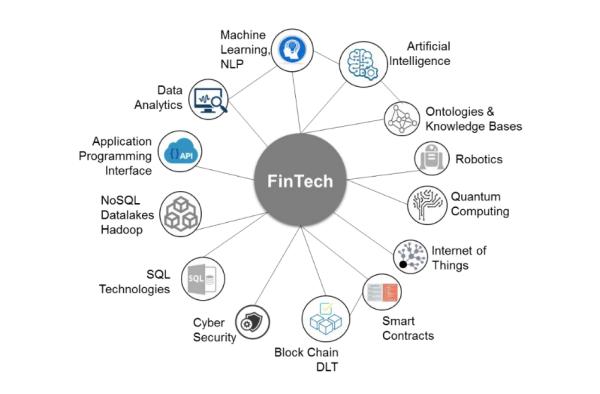Fintech report highlights importance of open standards
And access to fintech data… to everybody who needs it.

In 2018 the European Union asked a group of experts to review the application and suitability of the existing EU legal and regulatory framework when applied to fintech (that is “financial (digital) technology”). On December 13th, 2019, the group published a report entitled “30 Recommendations on Regulation, Innovation and Finance”. According to this article, the report recommends action in four areas (emphasis mine):
- Responding to new and changed risks caused by the use of innovative technologies such as AI and distributed ledger technology
- Removing fragmentation across the EU and ensure a level playing field between different participants in the financial services sector as they leverage new technologies
- Reconciling data protection with the opportunities offered by fintech
- Considering the potential impact of fintech on consumers, from the perspective of financial inclusion and the ethical use of data
Below are the main points of the synthesis, alternated with my own comments.
Same old, same old
- “Much of what is called fintech is already covered by EU law, albeit not very consistently. There are only a few entirely new risks to consider, with big tech companies such as Google and Amazon posing the biggest challenges in regulation”.
Ah, OK then. We have nothing to worry.
-
The European commission should promote the use of fintech “as a means to address financial inclusion and not cause unfair discrimination”.
-
“It is essential that data subjects are empowered to determine who can access their data and for what purpose”.
It is hard to imagine how the reaction to the general public to this will be different than what it was with GDPR: blindly click through notification screens, until you get what you were looking for.
Technological neutrality!
The experts stressed that the aims and recommendations outlined in the report should be pursued in a way that is technologically neutral, “in the sense that it does not differentiate between the different technologies that can potentially be used to provide a service, offer a product or perform a function, or between different service provides… Cross-sectoral and international cooperation will be “crucial” in setting relevant standards, due to the often borderless nature of fintech”.
This may be the most significant part of the report. Truly open, royalty-free standards, and Free/Open Source reference implementation of each of the main blocks are mandatory to not make an embarrassing mess of all this. We’ll see.
Hey, what about blockchain and cryptocurrencies???
Relax. The group also studied the most fashionable buzzwords of the moment, and concluded that:
- “Distributed ledger technology (DLT) and blockchain are similar to AI, in that the technology itself does not need to be regulated”
This is probably good… if applied with the same spirit of what this other report got right
Last but not least: what is missing?
The same thing that is missing from many other reports and directives, in the European Union and elsewhere: “citizens”. There seem to be only “consumers”, in many places and contexts where it should be imperative to deal with, and care about, citizens.
Who writes this, why, and how to help
I am Marco Fioretti, tech writer and aspiring polymath doing human-digital research and popularization.
I do it because YOUR civil rights and the quality of YOUR life depend every year more on how software is used AROUND you.
To this end, I have already shared more than a million words on this blog, without any paywall or user tracking, and am sharing the next million through a newsletter, also without any paywall.
The more direct support I get, the more I can continue to inform for free parents, teachers, decision makers, and everybody else who should know more stuff like this. You can support me with paid subscriptions to my newsletter, donations via PayPal (mfioretti@nexaima.net) or LiberaPay, or in any of the other ways listed here.THANKS for your support!